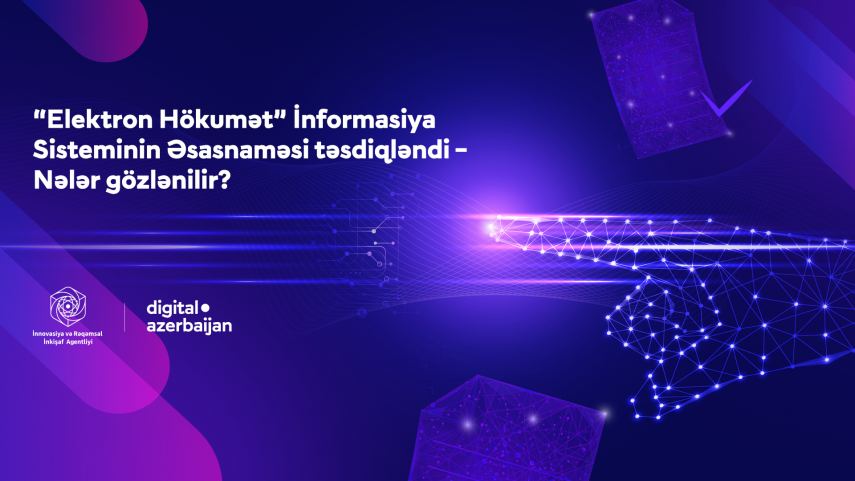The Regulation on the Electronic Government Information System has been approved – What’s next?

A significant step has been taken toward the development of digital government infrastructure in the country. By Presidential Decree of Ilham Aliyev dated August 12, 2025, the Regulation on the Electronic Government Information System (EGIS) has been approved. This document defines the legal, organizational, and technological foundations of the system’s operation.
According to the Regulation, the Ministry of Digital Development and Transport of the Republic of Azerbaijan will act as the owner of the EGIS.
The system consists of eight core subsystems that ensure digital governance across different areas:
-
Unified Public Utilities – collection, processing, analysis, and centralized provision of electronic services related to utilities;
-
Digital Consent – processing and transfer of personal data strictly based on lawful consent;
-
Digital Local Executive Authority – management of electronic services of local executive bodies and guardianship/trusteeship decisions;
-
Registry of Non-Normative Legal Acts of Local Executive Authorities – creation of a unified database of such acts;
-
Digital Document Circulation – secure, real-time document exchange between government entities;
-
Unified Registry of State Information Resources, Systems, and e-Services – integration of all state information resources in a single database;
-
Digital Data Exchange – secure data exchange between government information systems;
-
Unified Access – advanced certified electronic signatures and other identification tools enabling single sign-on authentication.
Services within the EGIS will be provided through the “one-stop-shop principle” via the mygov, mygov Business, Open Data, and Geoportal platforms. Government-to-business services will be delivered through mygov Business, while the Digital Consent subsystem will make it possible to share personal data with business entities on a legal basis. In turn, businesses will be able to provide their services through mygov and mygov Business platforms. Citizens will also be able to submit applications and information requests via mygov. Additionally, services will be accessible through mobile apps, virtual assistants, and other digital channels. Based on user-centric design and intuitive interfaces, these features will simplify the use of digital services for both citizens and businesses.
The implementation of the new Regulation will not only enhance digitalization in public administration but also increase the speed and accessibility of services, strengthen inter-agency coordination, and ensure time and resource efficiency for citizens, businesses, and the state alike.
